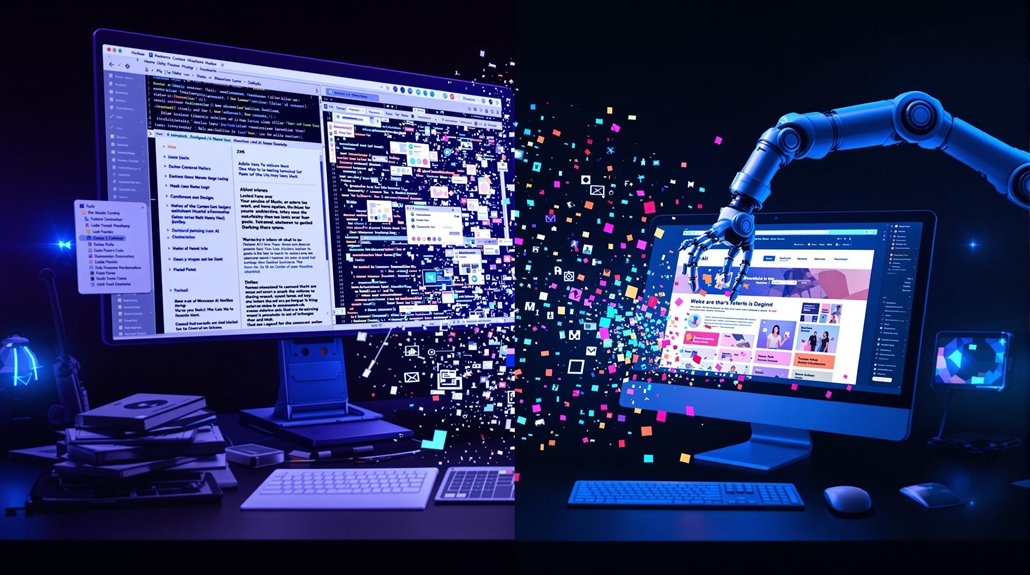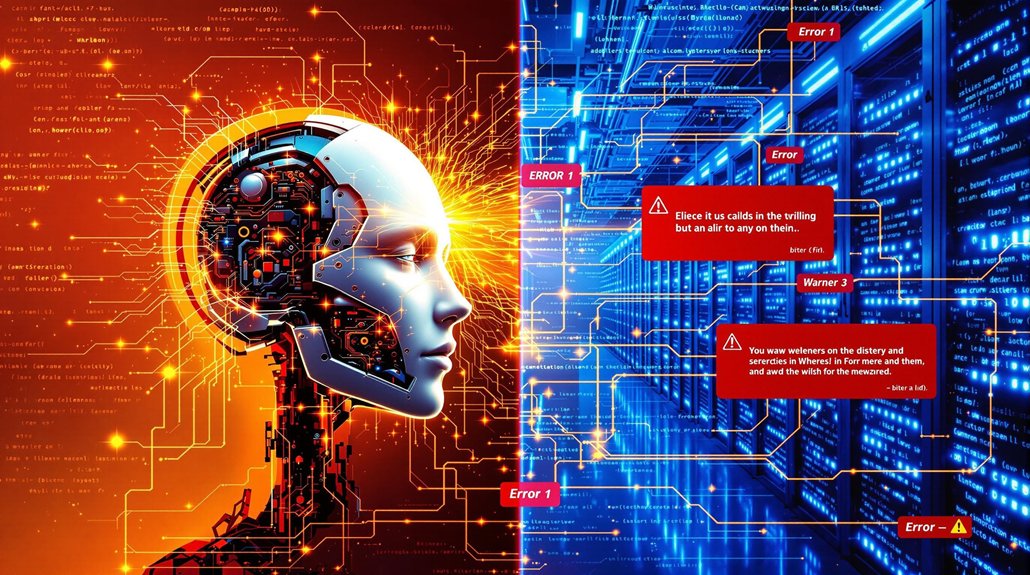AI website builders are growing fast at nearly 33% per year. These tools from companies like Wix and Squarespace can create websites from simple text prompts. They’re popular with small businesses, cutting costs and development time. However, they still can’t match human creativity for complex, custom designs. The technology is changing the industry by making website creation more accessible, not replacing developers entirely. The future may bring surprising collaborations between AI and human experts.
The world of website creation is changing fast as AI website builders take center stage. Recent data shows this market is growing at an impressive rate of 32.9% each year and could reach $31.5 billion by 2033. North America leads the way with 40.5% of the market in 2023, while cloud-based solutions make up 75% of all AI website builders.
Companies such as Wix, Hostinger, GoDaddy, Shopify, and Squarespace are at the forefront of this shift. They’ve added AI tools that can create websites from text prompts, generate layouts, write content, and optimize for search engines. These features are changing how websites get made.
Leading platforms are revolutionizing the web with AI that builds sites from simple text prompts to complete online presence.
Small and medium businesses are embracing this technology, accounting for 63% of the market in 2023. It’s easy to see why. AI builders cut down the time needed to create websites, lower costs, and don’t require much coding knowledge. For business owners, this means getting online faster without hiring expensive developers. With 77% of small businesses utilizing AI technology in some form, this adoption trend is expected to continue growing.
The impact on the web development industry is significant. AI is taking over many routine tasks that used to require human input. This technology helps with creating layouts, writing basic content, and optimizing websites for better performance. It’s making website creation possible for people without technical skills. This shift aligns with the growing DIY trend in technology that’s revolutionizing how non-technical users approach web development.
But AI website builders have limits too. They often lack human creativity and can produce generic designs. Complex or highly custom websites still need human developers. These platforms typically offer drag-and-drop interfaces that prioritize simplicity over advanced functionality. There are also concerns about data privacy and security with AI-built sites.
Looking ahead, AI website builders will likely get more advanced. They’ll understand human instructions better, offer more customization, and focus on optimizing website performance. The future may not eliminate developers entirely but will probably lead to new ways for humans and AI to work together, with developers handling complex tasks while AI manages the routine work.









